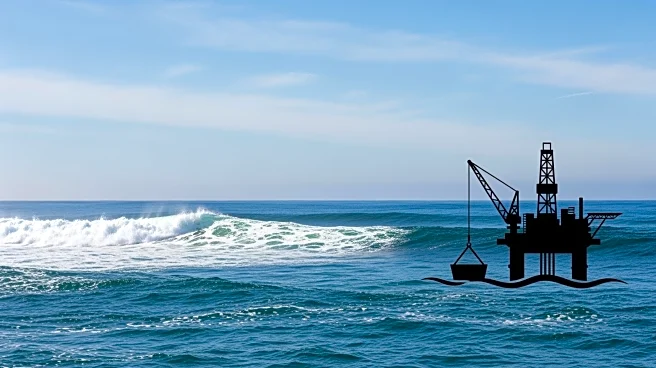What's Happening?
The Trump administration has decided against selling offshore oil and gas leases along the US East Coast, following concerns from Republican strongholds in the Southeast. The initial plan for expansive drilling rights faced opposition from environmentalists
and local stakeholders due to potential impacts on tourism and marine habitats. The Interior Department's draft proposed program may still include lease sales in the Gulf of Mexico, renamed the Gulf of America by President Trump, and other regions. The proposal is part of a long process to develop a new five-year schedule for offshore drilling.
Why It's Important?
The decision to halt Atlantic oil drilling plans reflects the administration's response to environmental and political pressures. The move could preserve tourism and marine ecosystems along the East Coast, aligning with environmentalists' concerns about expanding oil and gas production. However, the continued consideration of Gulf leases indicates ongoing support for energy development. The oil industry may benefit from increased drilling opportunities in the Gulf, while environmental groups may continue to advocate for restrictions. The decision impacts energy policy and regional economies.
What's Next?
The Interior Department will refine the draft proposed program, potentially advancing it for public release. The process will involve public comment and congressional scrutiny, which could lead to further changes. Stakeholders, including environmental groups and the oil industry, will likely engage in discussions to influence the final plan. The administration's energy policies may face challenges from political leaders and advocacy groups, shaping future decisions on offshore drilling.















